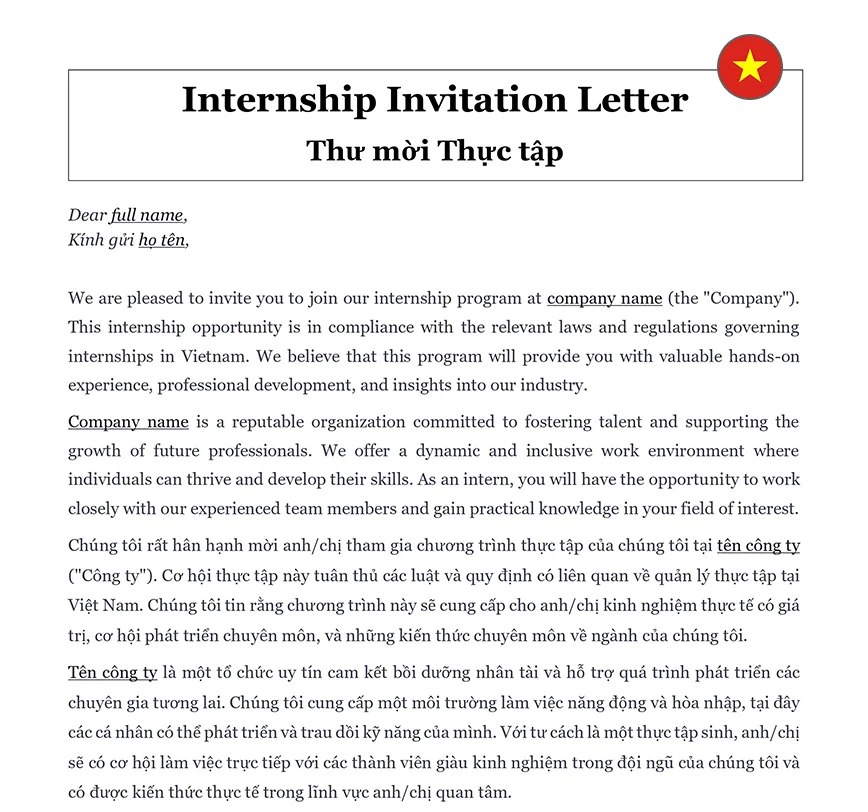Understanding the Legal Framework for Inviting Interns
The legal framework governing internships in Vietnam is outlined primarily in the Labor Code of Vietnam, along with other relevant regulations. According to the Labor Code, internships should be structured to provide substantial educational benefits and practical experience, not merely to fulfill routine tasks typically performed by regular employees. Internships should be carefully planned and managed to ensure compliance with these legal requirements. For detailed information on the Labor Code and related regulations, you can visit the Vietnam Law Database, which provides comprehensive legal resources for inviting interns and updates.
Internship Invitation Letter: Essential Elements
An Internship Invitation Letter is a formal document that outlines the terms and conditions of the internship. This letter is crucial as it sets the stage for the intern’s experience and ensures that both parties have a clear understanding of the internship arrangement. Use our Internship Invitation Letter to formally invite interns. The letter should include:
1. Internship Duration: Clearly specify the start and end dates of the internship, including any details about the internship schedule or working hours.
2. Duties and Responsibilities: Provide a detailed description of the tasks and projects the intern will be working on. This helps the intern understand their role and contributes to a more productive experience.
3. Compensation: If the internship includes a stipend or other forms of financial support, this should be clearly mentioned. Even if the internship is unpaid, outline any non-monetary benefits provided, such as meals or transportation allowances.
4. Supervision: Identify the supervisor or mentor responsible for guiding and overseeing the intern’s work. This ensures that the intern has a point of contact for support and feedback.
5. Legal Compliance: Confirm that the internship complies with Vietnamese labor laws and regulations, including health and safety requirements.
A well-crafted Internship Invitation Letter helps prevent misunderstandings and establishes a formal agreement between the intern and the organization.
Drafting an Internship Agreement
An Internship Agreement is a formal contract that outlines the specifics of the internship arrangement. This document ensures that both the intern and the organization are clear on their expectations and obligations. The agreement should include:
| ➤ Intern's Details: Include the intern's full name, contact information, and educational background. This provides a formal record of the intern's identity and status. |
| ➤ Organization Details: Provide the name, address, and contact information of the hosting company. This ensures that the intern knows the primary contact points within the organization. |
| ➤ Internship Terms: Define the duration, working hours, and specific responsibilities of the internship. This helps the intern understand their schedule and daily tasks. |
| ➤ Compensation: Detail any financial support, stipends, or other benefits provided to the intern. Transparency in this area helps manage expectations and ensures compliance with legal standards. |
| ➤ Confidentiality: Include clauses regarding the handling of confidential information and intellectual property. This protects both the organization’s and the intern’s interests. |











